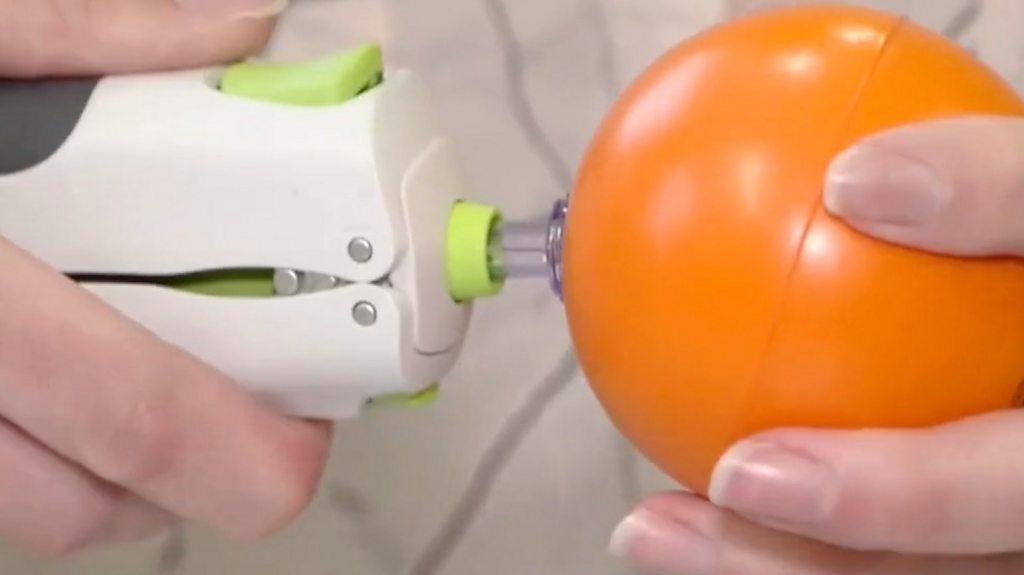'It is essential we remain vigilant on Covid-19'
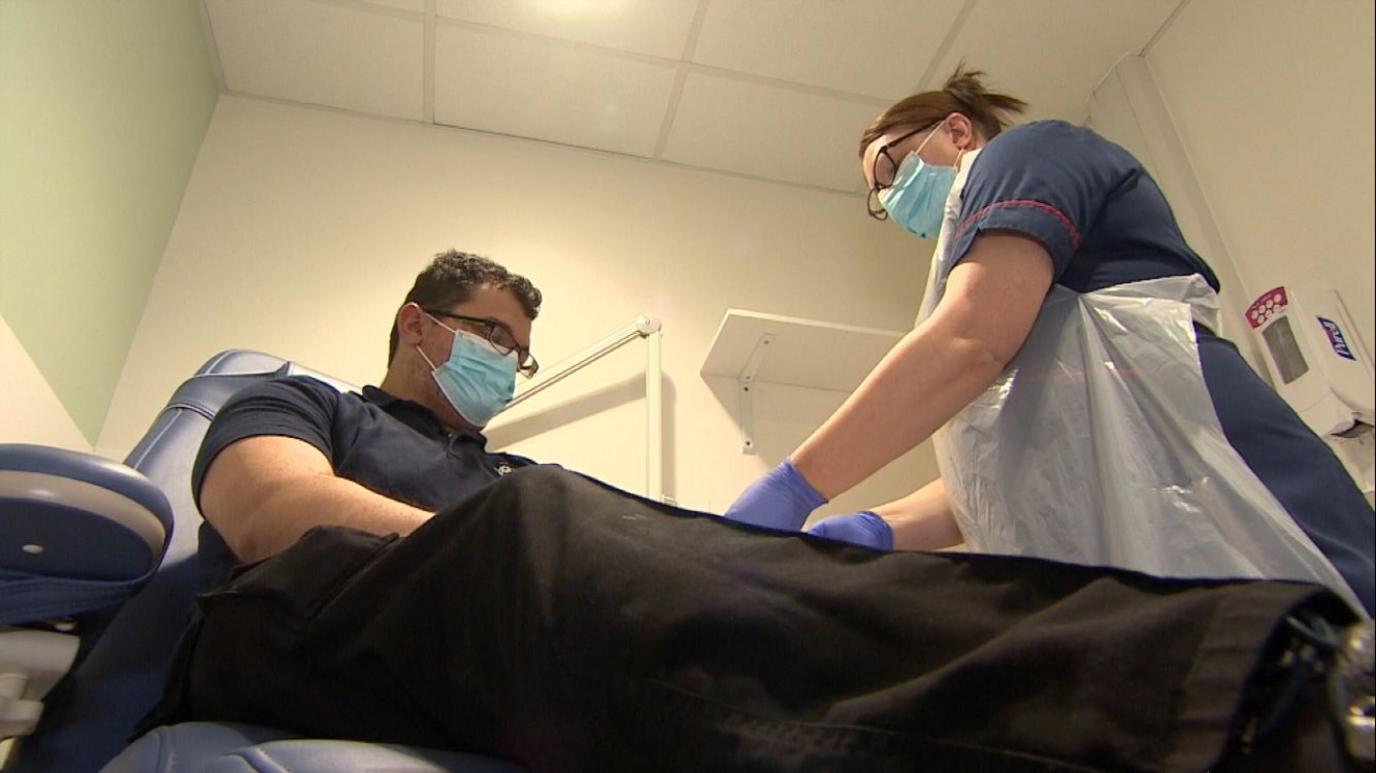
Jack Berry is one of the volunteers who has been getting his blood checked by the researchers
- Published
Cambridge researchers are continuing to regularly take blood from more than 150 volunteers, to check those most at risk from Covid-19 are still being protected by vaccines.
Jabs have been stopping most people getting severely ill, but hundreds of thousands remain vulnerable to the disease through illness or due to their age.
One of earliest findings from their research, which has been taking place since the pandemic began, was that the vaccine was not very effective in people aged over 80, until they had their second dose.
Prof Ravi Gupta, from the University of Cambridge's Department of Medicine, said he hoped the work would help scientists plan the next generation of vaccines.
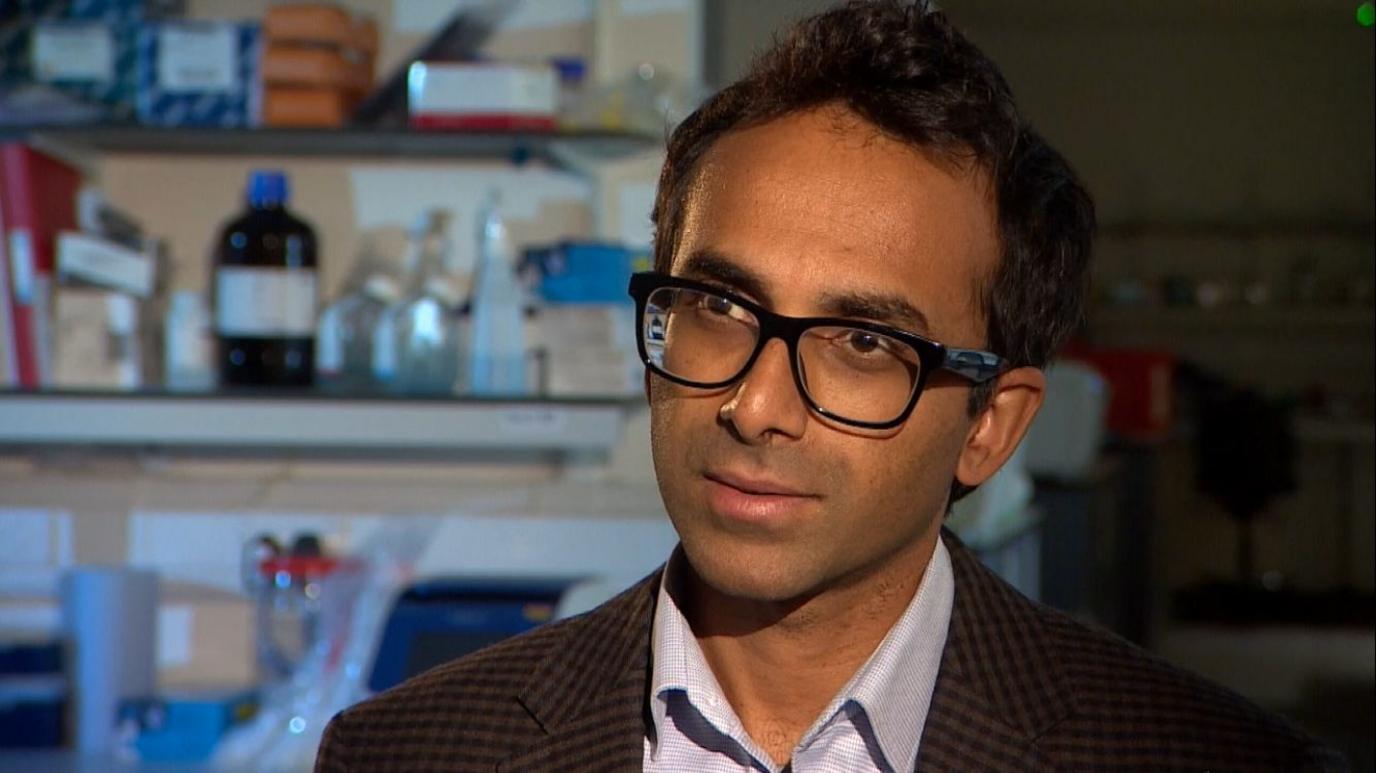
Prof Ravi Gupta said the research had led to a number of discoveries about the vaccines
The researchers have been using the volunteers' blood to check how well vaccines deal with new variants.
Volunteer Jack Berry, from Haverhill in Suffolk, said: "I lost family to Covid in the first wave, and I had Covid myself and my family has caught it. So I thought, if I can help out in my own little way, then other people can benefit from that."
Experts found the 22-year-old through a Cambridge invention called the NIHR BioResource, external.
Made up of 200,000 volunteers, with 8,000 dedicated to Covid research, it has become an easy place for scientists to recruit people willing help.
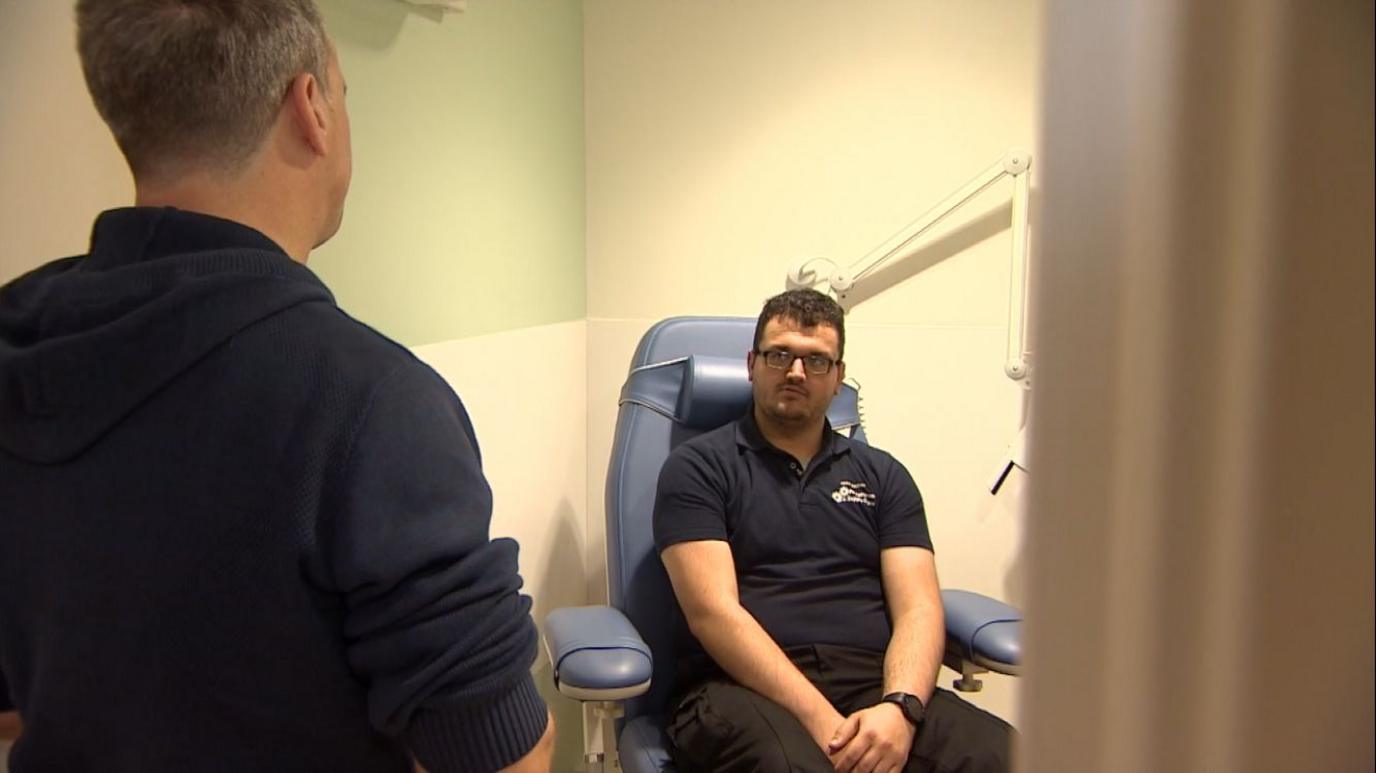
Mr Berry was found through the BioResource list of volunteers
After blood has been given by a volunteer, it is carried about 400m (1,312ft) across the city's Biomedical Campus to a state-of-the art lab run by Prof Gupta.
It is then spun quickly in a centrifuge until it separates into red blood cells at the bottom and yellow plasma at the top, where the antibodies from the vaccines live and do their work.
By testing those antibodies against the coronavirus, they can check how well the vaccines are fighting off new variants.
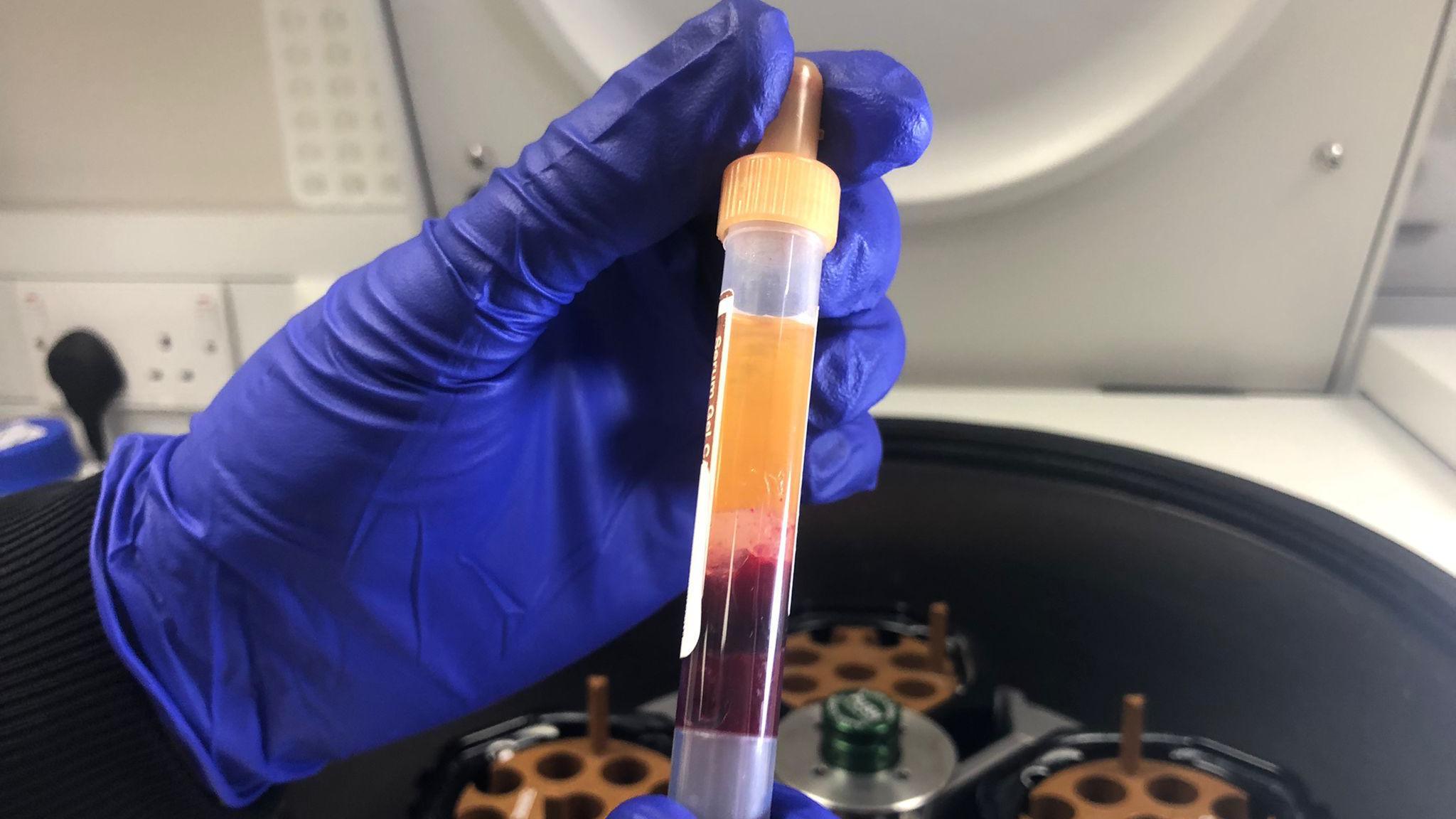
The yellow blood plasma is what the researchers need
Prof Gupta said: "Our focus really has been the elderly and individuals who are taking various drugs or who have had cancers who don't respond so well to vaccines, and really understanding how well their immune systems will respond to vaccines, especially as new variants come along.
"It is absolutely essential that we remain vigilant on Covid-19, with specific risk groups."
Find BBC News: East of England on Facebook, external, Instagram, external and Twitter, external. If you have a story for us, email eastofenglandnews@bbc.co.uk, external
You might also be interested in
- Published28 November 2022
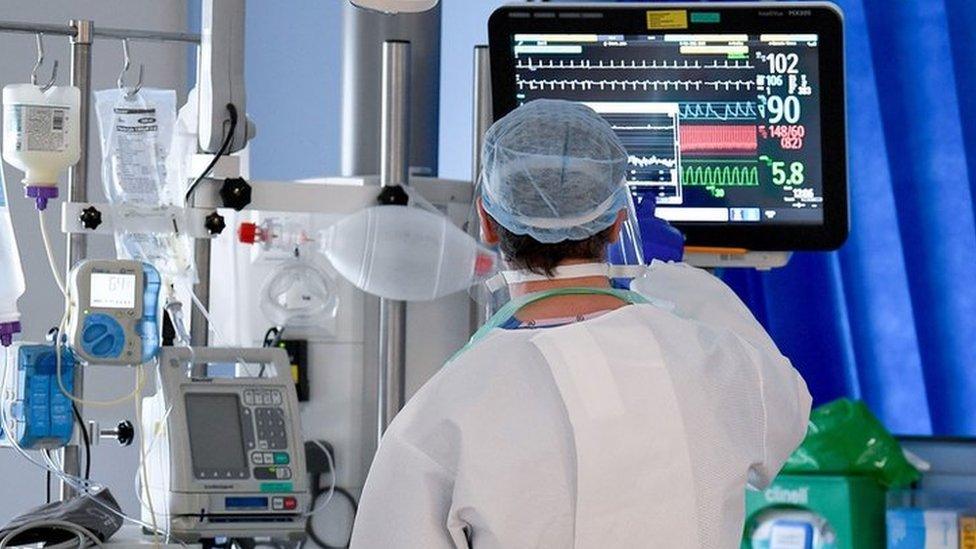
- Published14 December 2021
